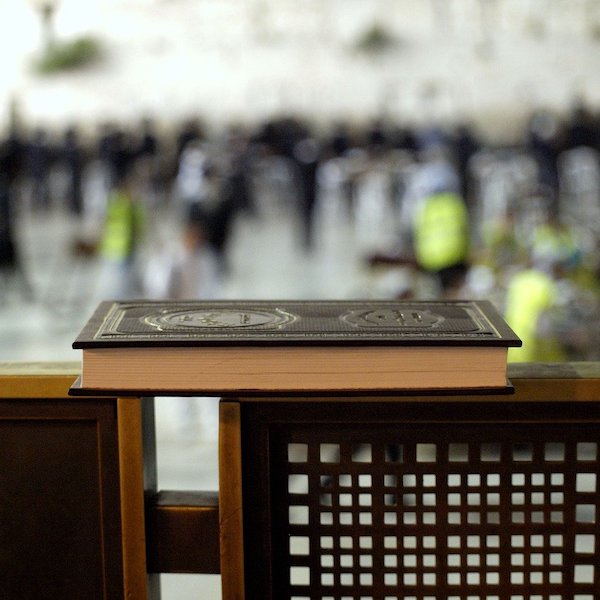
Rosh Hashanah, Day of Judgment, Book of Life and Death, flocks of sheep passing before the Creator. But the kids are saying, "Do we really have to go to synagogue? To sit for hours and be bored? To watch the parade of new fashions? To mumble prayers that we don't understand? What for?"
Parent shuffles the deck and responds, "You have to go to shul. That's what all Jews do on Rosh Hashanah. It's our tradition." On the surface there seems to be some logic to this response, the attempt to convey Jewish pride. But there's also a definite backlash factor in responding to children in a blatantly ethnocentric way, the locker-room aura of putting on our uniforms and ascending to the Jewish playing fields one more time.
What happens when our children reject this tautological view of the world, the one that says you do Jewish things because that's what Jews do? After all, we didn't tell the child why it was beneficial and essential for them to go to synagogue. We told them this is what we do in our family and in our community, and we relied on this alchemical mixture of group attachment and historical loyalty to produce gold.
Let's try a second option. The parent says, "I'm your parent and if I say you’ve got to go to shul today, you go." Admittedly the tactic of coercion causes blushing in many a postmodern Jewish household, but versions of it still resound for at least three days a year. Now, this approach also conveys an ostensible logic, which is that parents must establish themselves as authority figures, and don't necessarily have to enter into detailed discussions with their children (especially the younger ones) about the reasons behind every obligation they thrust upon their kids.
But if this is the exclusive rationale of the day—“we’re going to shul and that's that!”—then what the child learns is that power wills out. As they grow older, they often resent prayer precisely because it is a symbol of the old family power struggles. Even if the child does listen, his or her attitude will be to associate shul with guilt rather than any desire to worship. Over the long term, that is spiritual suicide. And so Rosh Hashanah has become the Jewish family's odd little poker game, parents dutifully betting on the hand of tradition and children calling the bluff of relevance. Or if one prefers a less ennobled version of children as truth-seekers, we might paraphrase the quintessential term of current teenage detachment: "Rosh Hashanah? Whatever."
The culture of "whatever" seeks to blur all distinctions by rewriting reality as a kind of fool's quest, hardly worthy of too much emotion, let alone intense existential striving. If a child grows up believing that everything's the same, then Hanukkah becomes Christmas, Purim becomes Halloween. But Judaism is different. While the first of January annually inspires a giant, fairly mindless party, Rosh Hashanah is a period of intense self-reflection, in which we are commanded in Jewish law to reflect on our behaviour and seek out ways to mend our relations with other people.
Most of all, it is a time to consider our relationship with God. My experience with many teenagers is that, beneath their well-rehearsed disengagement, they have some very strong feelings about God, both the God they believe in and the God they claim is an illusion. This Rosh Hashanah, pay attention to what your family talks about when it talks about God. According to our tradition, God will do likewise.
